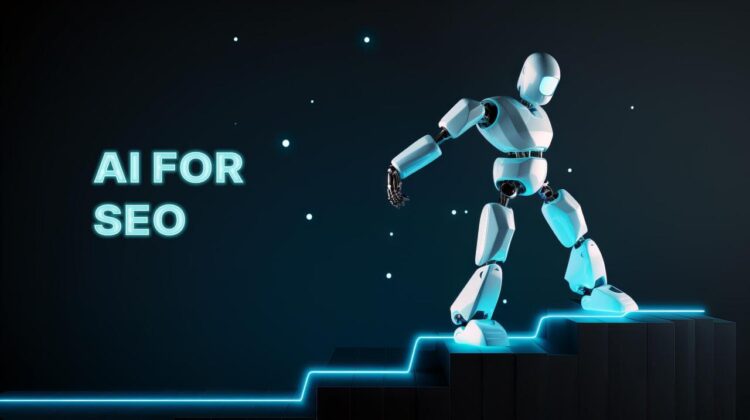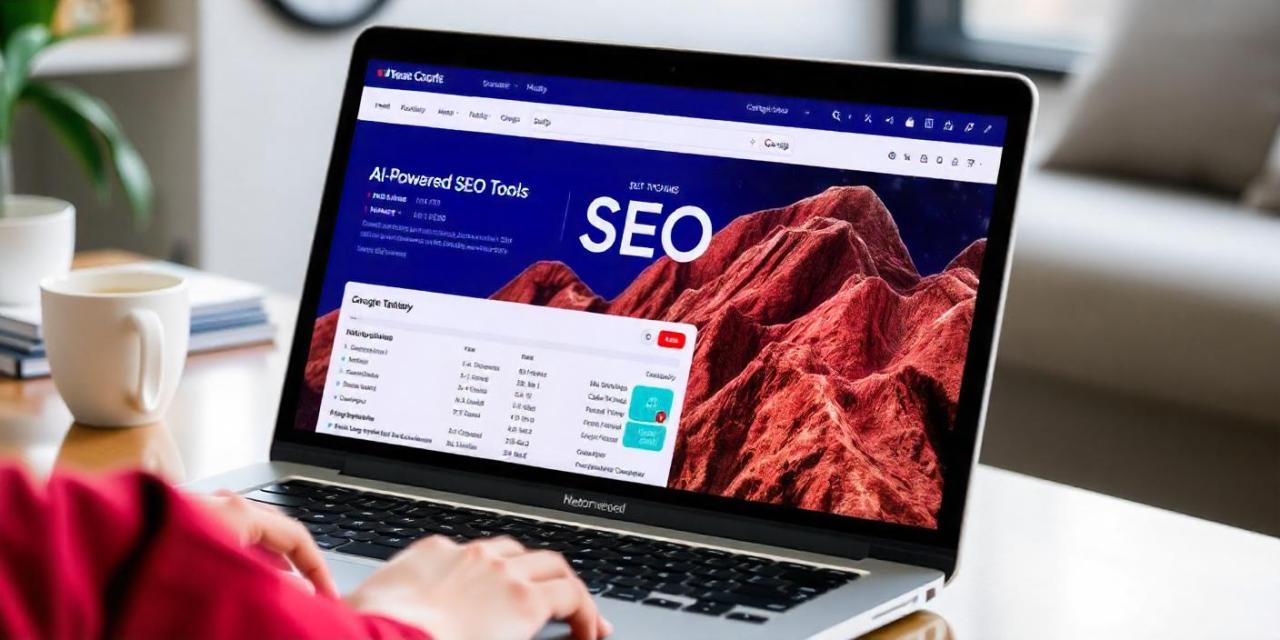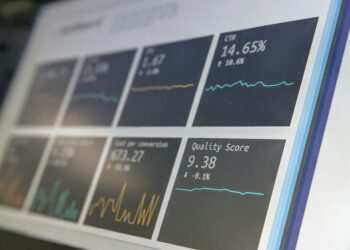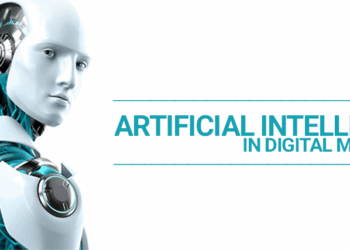Mastering SEO with AI-Driven Marketing Tools
The world of Search Engine Optimization (SEO) has long been a complex and dynamic arena, a constant game of cat and mouse with ever-evolving search engine algorithms. From keyword stuffing in the early days to the sophisticated, user-centric approaches of today, the fundamental goal remains the same: to achieve top rankings, drive organic traffic, and secure a competitive edge. However, the sheer volume of data, the complexity of technical requirements, and the time-consuming nature of SEO tasks have often been a barrier, making it a challenge for even the most seasoned digital marketers. But now, a new ally has emerged, fundamentally changing the rules of the game: artificial intelligence (AI). Far from being a futuristic gimmick, AI has become an indispensable part of the modern SEO toolkit, not as a replacement for human marketers, but as a powerful co-pilot. By automating tedious tasks, providing unparalleled insights, and even predicting future trends, AI-powered tools are ushering in a new era of efficiency and effectiveness. This comprehensive guide will explore the transformative impact of AI on SEO, detailing its core applications, highlighting the best tools available, and outlining the strategic advantages and potential pitfalls of this revolutionary technology.
The AI-SEO Symbiosis: A New Era for Digital Marketing
At its core, AI is a set of technologies that enable computers to learn from data, identify patterns, and make decisions without explicit programming. When applied to SEO, this means algorithms can analyze millions of data points—from search queries and user behavior to competitor strategies and backlink profiles—at a scale and speed impossible for a human. The traditional SEO workflow, often characterized by manual research, spreadsheet analysis, and educated guesswork, is being augmented by a new, data-driven approach.
The AI-SEO symbiosis is not about outsourcing strategy to a machine; it’s about providing marketers with a superhuman assistant. While a human might spend hours or even days performing a competitive keyword analysis, an AI tool can accomplish the same task in minutes, and with a level of depth that reveals hidden opportunities and semantic relationships that would otherwise go unnoticed. This shift allows marketers to move away from repetitive, data-gathering tasks and dedicate more time to high-level strategy, creative problem-solving, and audience engagement.
The Core Functions of AI in the SEO Workflow
AI’s integration into SEO is not limited to a single function. Instead, it is a multi-faceted technology that enhances virtually every stage of the digital marketing process. By breaking down the traditional SEO workflow, we can see exactly where and how AI is providing game-changing value.
A. AI for Keyword Research and Strategy
Keyword research is the bedrock of any successful SEO campaign, but it’s a notoriously time-consuming process. AI transforms this foundational task in several key ways:
- Semantic Analysis: Traditional keyword tools often rely on exact match keywords. AI, however, can understand the user’s intent behind a search query. It can analyze the search engine results page (SERP) to identify related topics, long-tail keywords, and semantic terms that a user might be searching for. This allows marketers to build more comprehensive and topically relevant content clusters.
- Competitive Gap Analysis: AI tools can crawl and analyze the websites of your top competitors, identifying the keywords they rank for that you don’t. This can reveal untapped opportunities and strategic content gaps that are ripe for exploitation. Instead of manually sifting through competitor data, AI provides a clear, actionable list of keywords to target.
- Predictive Keyword Trends: By analyzing historical search data and user behavior, AI can forecast future keyword trends. This gives marketers a significant advantage, allowing them to create content for a rising trend before their competitors even realize it’s an opportunity.
B. AI for Content Creation and Optimization
Content is king, but creating content that is both high-quality and search-engine-optimized is a monumental task. AI offers powerful solutions for both content generation and refinement.
- Content Generation: AI writing assistants can generate outlines, draft articles, write meta descriptions, and even create entire blog posts from a simple prompt. While the output may require human editing to add a unique voice and expertise, these tools can dramatically accelerate the content creation process. They are particularly useful for generating boilerplate content, product descriptions, or initial drafts.
- On-Page Optimization: This is where AI truly shines. Tools powered by AI can analyze the top 10-20 search results for a target keyword and provide a detailed blueprint for a high-ranking article. They recommend key terms to include, suggest a target word count, identify essential headings, and even provide a “content score” that indicates how well a piece of content is optimized to compete. This eliminates the guesswork and allows marketers to create content that is scientifically engineered for a top-ranking position.
C. AI for Technical SEO Audits
Technical SEO is a complex domain that requires a deep understanding of website architecture and search engine crawling. AI can automate many of these intricate processes.
- Website Audits at Scale: AI-powered crawlers can quickly and thoroughly audit a website, no matter its size. They can identify technical issues such as broken links, crawl errors, duplicate content, slow-loading pages, and missing schema markup. They provide actionable reports that prioritize the most critical issues, allowing developers and marketers to fix problems that are hindering search performance.
- Log File Analysis: For large websites, analyzing server log files to understand how search engine bots are crawling the site is a tedious but crucial task. AI can sift through these massive files, identify crawl patterns, and flag inefficiencies, helping to ensure that search engines are indexing the most important pages.
D. AI for On-Page and User Experience (UX) Signals
User experience is a critical ranking factor, and AI provides new ways to measure and improve it.
- Behavioral Data Analysis: AI can analyze user behavior on a website, including click-through rates (CTR) from the SERPs, time on page, and bounce rates. By identifying patterns in this data, AI can suggest changes to improve user engagement, such as optimizing a title tag to increase CTR or re-structuring a page to improve readability and time on page.
- Internal Linking Recommendations: AI can analyze a site’s content and structure to recommend the most effective internal linking strategy. By creating a logical network of internal links, you not only help users navigate the site but also help search engines understand the relationships between your pages, which strengthens your topical authority.
E. AI for Link Building and Outreach
Link building is often considered one of the most challenging aspects of SEO. AI can make the process more efficient and effective.
- Prospect Identification: AI can crawl the web to identify high-quality, relevant websites that would be ideal link prospects. It can analyze a prospect’s domain authority, relevance, and backlink profile to provide a list of the most valuable opportunities.
- Personalized Outreach: AI can analyze a prospect’s website and social media profiles to draft personalized outreach emails. This moves beyond generic templates, increasing the likelihood of a successful response.
F. AI for Predictive SEO Analytics
Moving beyond just reporting on past performance, AI enables marketers to forecast future outcomes.
- SERP Forecasting: AI can analyze trends in search result pages to predict how a future Google algorithm update might impact rankings. This allows marketers to proactively adjust their strategies and mitigate potential negative impacts.
- ROI Modeling: By combining data on keyword difficulty, search volume, and competitor performance, AI can model the potential return on investment (ROI) for different SEO campaigns, helping marketers prioritize their resources for the maximum impact.
Practical Tools for the Modern SEO Professional
To implement the AI functions described above, marketers have a growing number of powerful tools at their disposal. While the landscape is constantly evolving, here are some of the most influential players in the market today.
- Large Language Models (LLMs) like ChatGPT and Google Bard: These general-purpose AI models are the most accessible entry point. They are excellent for brainstorming, content outlining, drafting email copy, and even writing simple meta descriptions. While not specialized for SEO, they are invaluable for a wide range of content-related tasks.
- Content Optimization Suites (e.g., SurferSEO, Frase, Clearscope): These tools are the gold standard for on-page SEO. They analyze top-ranking content for a given keyword and provide a detailed, data-driven list of recommendations, including keywords to use, target word count, and a clear optimization score. They bridge the gap between human creativity and data-driven strategy.
- AI Writing Assistants (e.g., Jasper, Copy.ai): These specialized platforms are designed to generate marketing copy at scale. They excel at writing product descriptions, ad copy, and initial blog post drafts, helping to overcome writer’s block and speed up the content creation process dramatically.
- All-in-One SEO Platforms with AI Features (e.g., Semrush, Ahrefs): Industry-leading platforms are rapidly integrating AI into their core functionalities. For example, they now offer AI-powered features for content topic research, competitive analysis, and keyword gap analysis, providing a more comprehensive view of the SEO landscape.
- Predictive Analytics Platforms (e.g., Market Brew, Botify): These enterprise-level tools use advanced AI to model how search engines crawl and rank websites. They can predict how changes to a site’s technical structure or content will impact rankings before the changes are even implemented, allowing for a proactive and highly strategic approach to SEO.
The Strategic Advantages and Pitfalls of AI in SEO
While AI offers immense potential, a successful implementation requires a clear understanding of both its benefits and its limitations.
A. Strategic Advantages
- Unprecedented Efficiency: AI automates tedious, repetitive tasks, freeing up human marketers to focus on creativity, strategy, and brand building.
- Superior Data Analysis: AI can process and find patterns in data that would be impossible for a human to analyze, leading to deeper insights and more effective strategies.
- Scalability: AI allows teams to scale their SEO efforts without a proportionate increase in human resources. You can produce more content, audit more pages, and find more opportunities with a leaner team.
- Competitive Edge: By leveraging AI, marketers can react to market shifts faster, uncover hidden opportunities, and outmaneuver competitors who are still relying on manual processes.
B. Potential Pitfalls and Ethical Concerns
- Content Quality and Authenticity: A major risk of over-reliance on AI is the creation of generic, low-quality content that lacks a unique voice, expertise, or genuine insight. Google’s algorithms are becoming increasingly adept at identifying this type of content, which can lead to penalties. The human-in-the-loop is essential to edit, refine, and add a layer of personal expertise and experience.
- Algorithm Instability: AI models are trained on past data. A major, unexpected algorithm update from Google could render an AI model’s advice obsolete, leading to a sudden drop in rankings. This highlights the need for human judgment and up-to-date knowledge.
- Ethical Concerns: The misuse of AI, such as for mass-producing spammy, low-quality content, or for generating misleading information, is a real concern. There is also the risk of a “race to the bottom” where every website uses the same AI-generated blueprint, leading to a homogenous, uninspired internet.
What’s Next for AI and SEO?
The AI revolution in SEO is not a fleeting trend; it is the new normal. Looking ahead, we can expect to see further integration and innovation.
- Conversational and Multimodal Search: As search engines like Google incorporate conversational AI and analyze images and video, AI-powered SEO tools will evolve to help optimize for these new search modalities.
- The Rise of E-E-A-T: Google’s emphasis on Experience, Expertise, Authoritativeness, and Trustworthiness (E-E-A-T) means that generic, AI-generated content will be less and less valuable. The future of SEO will be about using AI as a tool to showcase and amplify genuine human expertise.
The ultimate takeaway is clear: the future belongs to the marketer who embraces AI as a strategic partner. It’s not about choosing between human intelligence and artificial intelligence; it’s about combining the creativity, strategy, and intuition of a human with the speed, scale, and analytical power of a machine. Mastering this new partnership is the key to unlocking the next level of SEO success.












